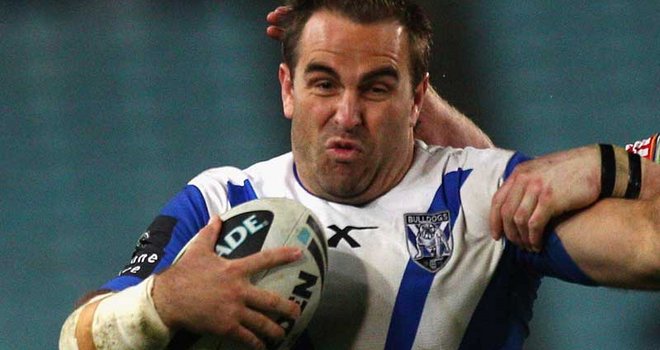 More details have emerged about a betting scandal that rocked Australia’s national sport earlier this year. Ryan Tandy has been accused of attempting to gain a financial advantage from others by manipulating a game so that a certain outcome was possible in the National Rugby League (NRL) encounter earlier this year. The game involved the side Tandy turned out for, the Canterbury Bulldogs and the North Queensland Cowboys in August 2010.
More details have emerged about a betting scandal that rocked Australia’s national sport earlier this year. Ryan Tandy has been accused of attempting to gain a financial advantage from others by manipulating a game so that a certain outcome was possible in the National Rugby League (NRL) encounter earlier this year. The game involved the side Tandy turned out for, the Canterbury Bulldogs and the North Queensland Cowboys in August 2010.
We already know that the charge related to Tandy deliberately fumbling the ball so that a penalty would be awarded to the Cowboys under the post. Before the game the scam was set as he tried to dishonestly obtain a financial advantage “for Sam Ayoub, John Elias and others, to wit $113,245 from Tabcorp.” The betting pattern was so unusual that the court was told that the penalty-goal that usually attracts 9.1% of bets in a year attracted 97.1% on this game. Talk about shooting yourself in the foot.
Even worse for Tandy and his bro’s was that the Cowboys went for the try instead of a penalty and thus negated any benefits that the group would have seen from the scam. Tandy’s lawyer, Tony Bellanto, trying to protest the player’s innocence, told the court, “There is no evidence of any connection or link between Mr Tandy and anybody as to the betting.
“There is no evidence that Tandy put bets on the game, or of any communication between him and anybody about what was to take place.”
This case along with a number of other cases that have affected both the NRL and AFL leads you to believe that a clampdown on gambling industry advertising might not be too far away. It should be said though that it’s the players themselves that are getting in trouble and not the fans. Much more effective would be a heavier clamp-down on the proprietors with lengthy bans and heavier fines handed out.
